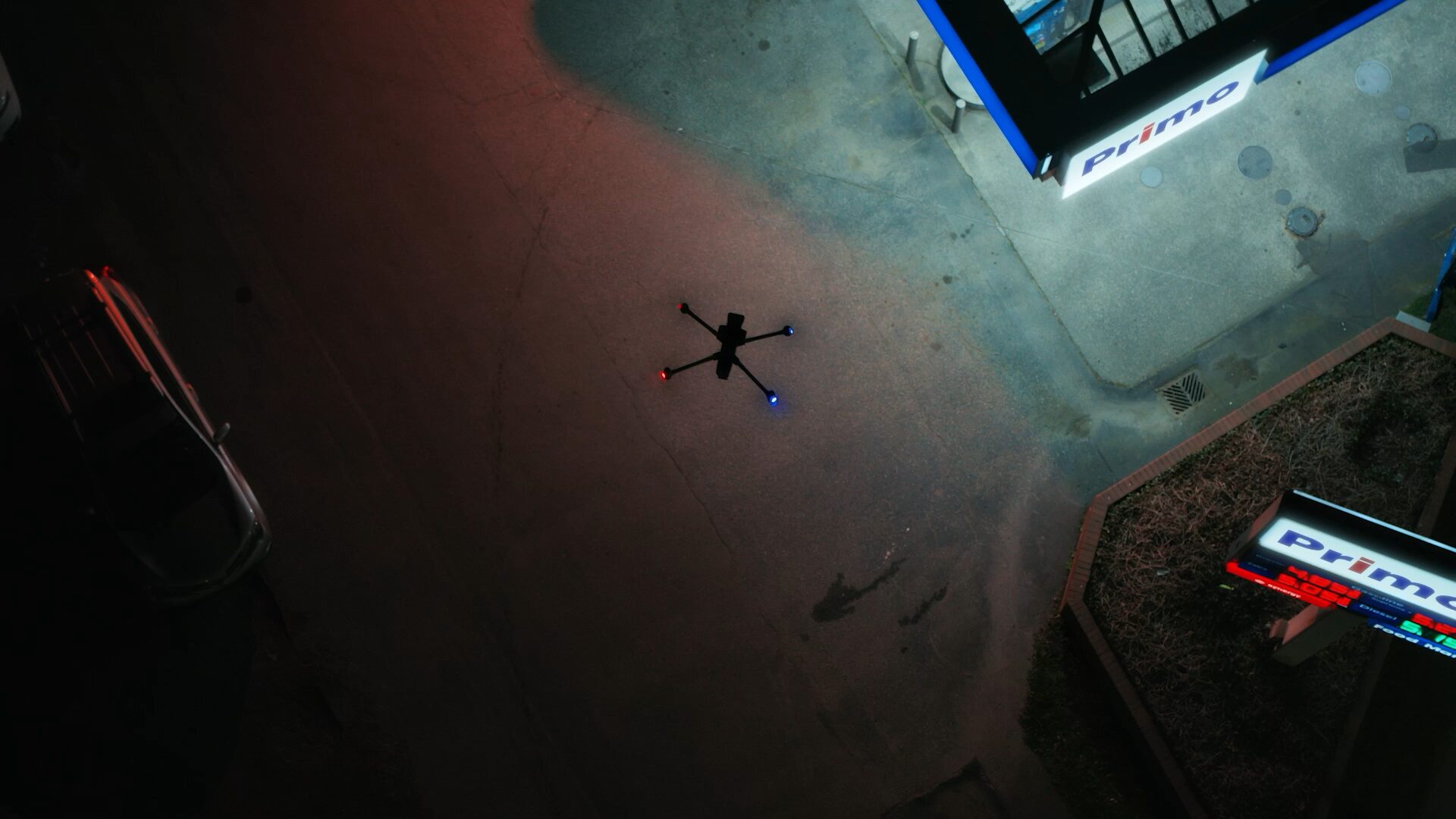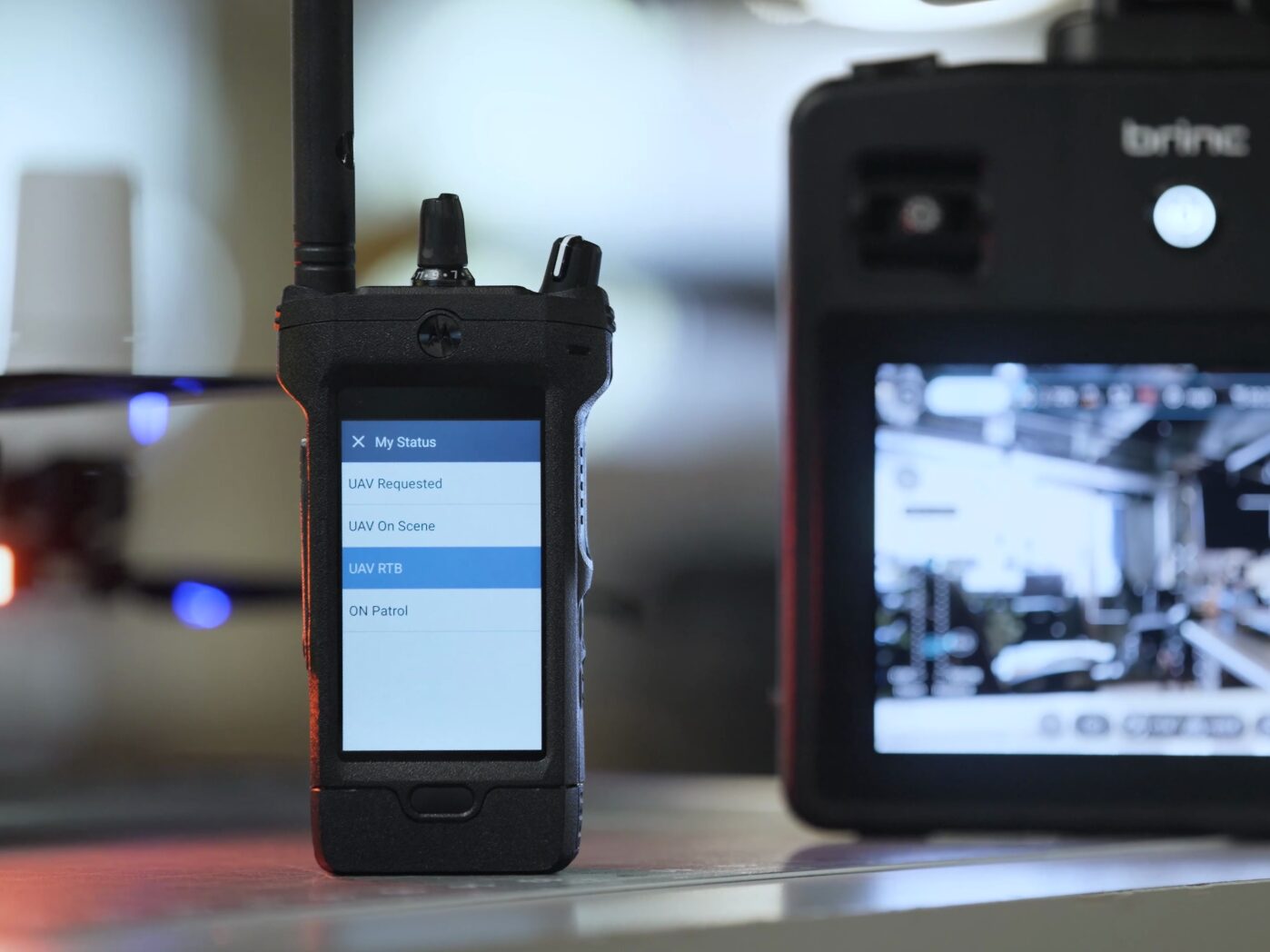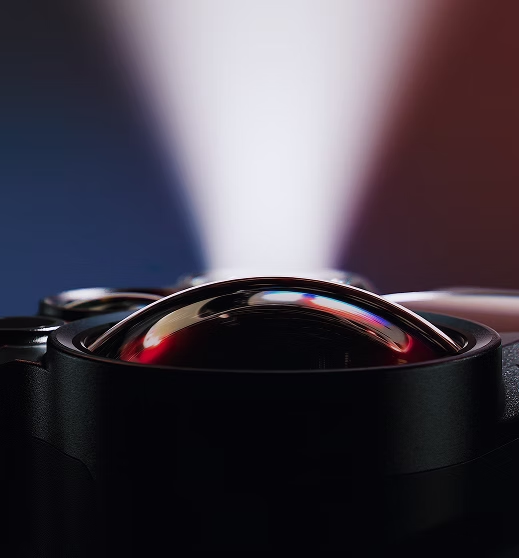Building A Better Way For Drones To Deliver Emergency Medical Payloads
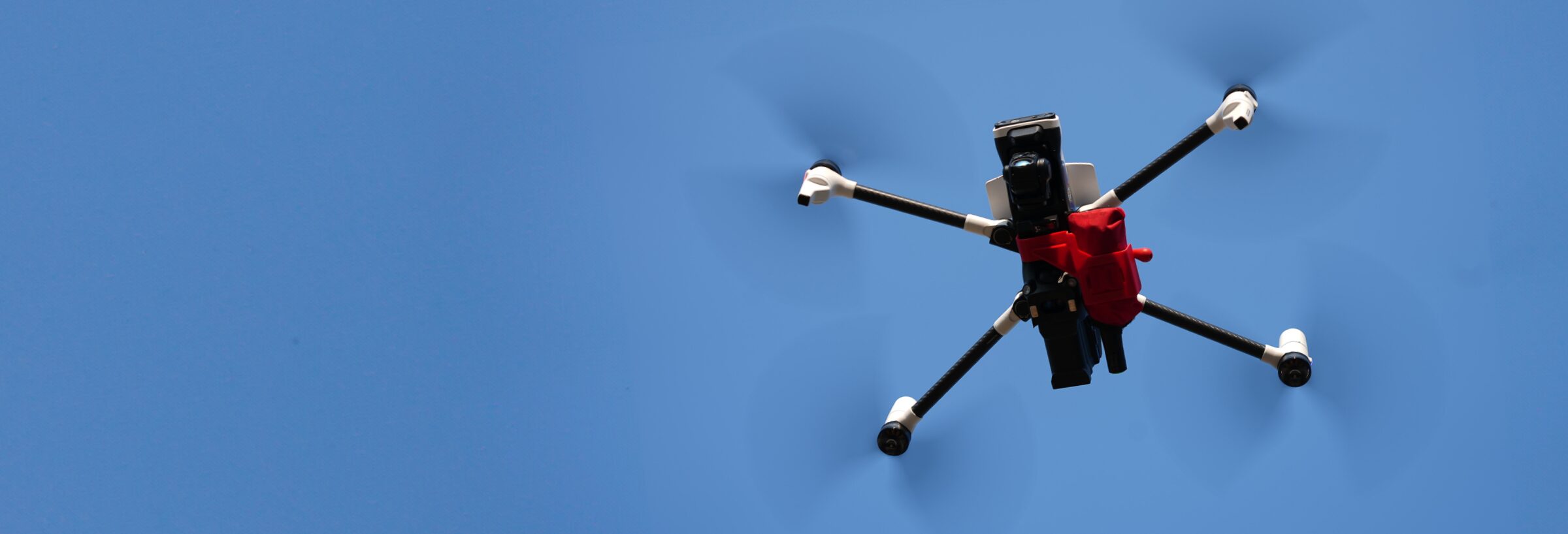
Less DIY. More Fully-Integrated Mounting Systems.
Nine years ago, drones were a relatively new phenomenon especially within public safety. If first responders had access, they had to be creative, piece-mealing consumer drones together to execute rescue operations.
Take Joshua Fire Department volunteer Garrett Bryl, for example, who flew his personal quadcopter (nicknamed Valkyrie) during the 2015 Johnson County, Texas, flash floods. With the Kastel family trapped in their mobile home by flood waters, Bryl attached a rope to Valkyrie and flew it over to the Kastels, who attached it to a beam on their house. Rescue workers then used that rope to send over life preservers before airlifting the family to safety in a helicopter.
“Knowing that we had life vests and a safety line made a huge difference,” Kastel told People Magazine. “Watching that drone come in was the coolest thing I’d ever seen.”
It’s a great early example of how drones can save lives during rescue operations. But what if we could take some of the spontaneous ingenuity out of it? What if public safety drones came custom-equipped with outfitting that could easily deploy specific payloads? First responders would no longer lose precious time jerry-rigging their drones to save lives––purpose-built technology could free up time to save even more lives.
At BRINC, this is what we’ve been working on as we’ve engaged public safety teams across America and received feedback on their ideal 911 drone response system.
“When drones deliver emergency medical payloads, they don’t just benefit public safety departments but the community as a whole,” says Don Redmond, retired police captain and BRINC VP of Public Safety. “There’s a huge benefit to having these public safety drones standard equipped with lifesaving tools.”
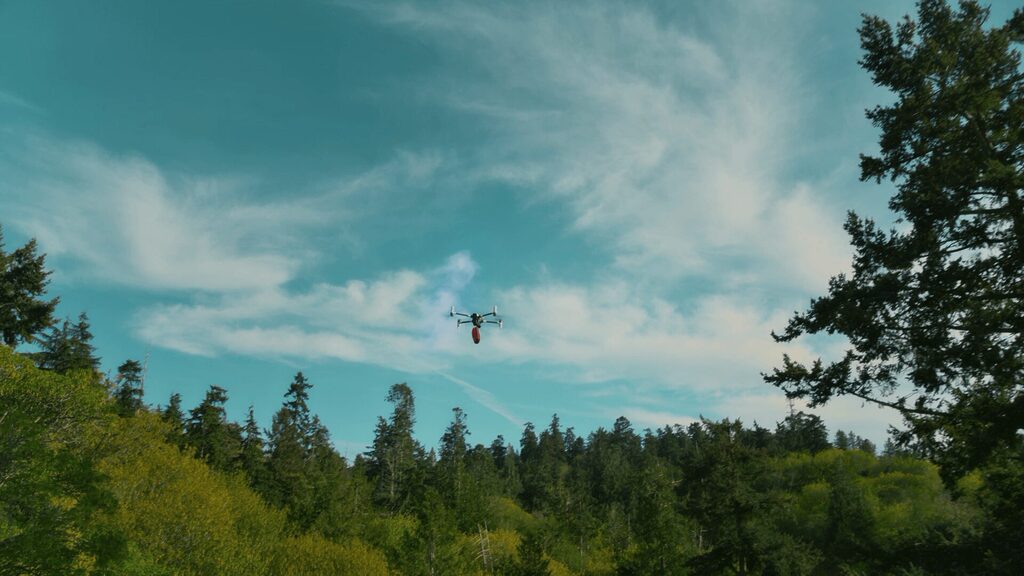
Critical Deliveries Save Lives
The goal at BRINC is simple: engineer a seamless way for public safety agencies to operationalize emergency medical deliveries. So first responders can rapidly deploy drones during emergencies, and pre-mounted medical devices can arrive within 70 seconds. In critical situations, like an overdose, drowning or a heart attack, that’s the difference between positive and negative outcomes.
In the case of the Johnson County flash floods, first responders wouldn’t have had to rely on a rope hastily tied to a personal quadcopter because an Emergency Flotation Device (EFD) would’ve already been mounted on their drone.
Or should someone in the backcountry suffer a medical emergency—be it an overdose, injury or an anaphylactic reaction—first responders could provide life-saving supplies with drones mounted with Narcan, trauma kit, or EpiPens.
Now imagine if first responders were able to drop an Automated External Defibrillator (AED) in a remote location and jumpstart the heart of someone going through cardiac arrest. Or drop Glucagon to a hiker experiencing a diabetic emergency.
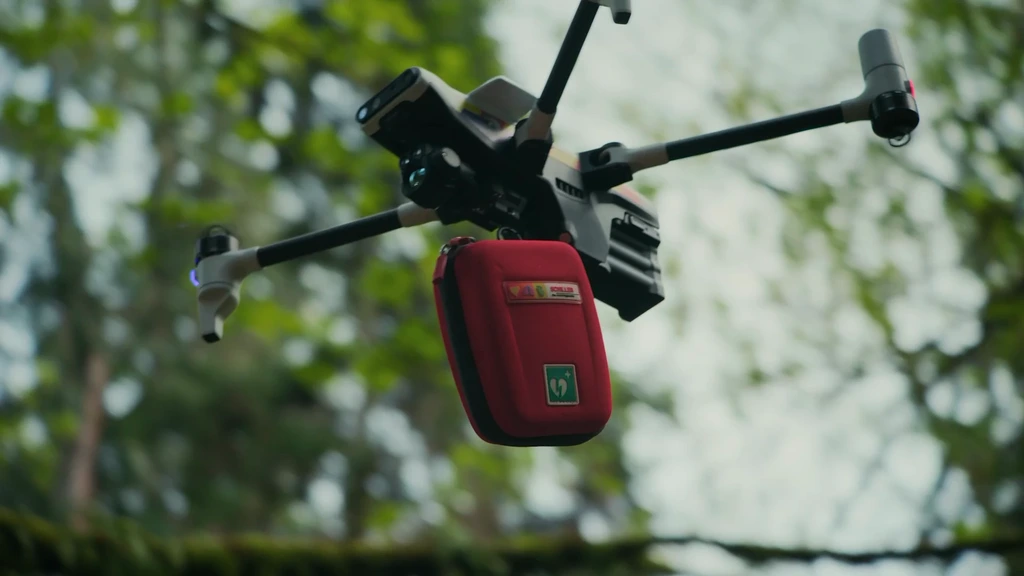
BRINC Responder drones not only have the capacity to save lives by delivering these medical devices, but they also have two-way communication so operators, pilots, or dispatchers can talk to victims in times of distress when the payload is delivered. Should a good samaritan need help administering the Narcan or EpiPen dropped from a Responder drone, clear directions and assurance can be provided in real time.
To make these emergency medical deployable payloads a reality, BRINC is in the process of partnering with companies behind life-saving payloads such as EFDs, Narcan, AEDs, EpiPens and more.
One such example is our recent partnership with Omada Group to provide easily deployable Restube EFDs to first responders. These lightweight Restube EFDs deploy automatically when they hit water and provide 75N actual buoyancy.
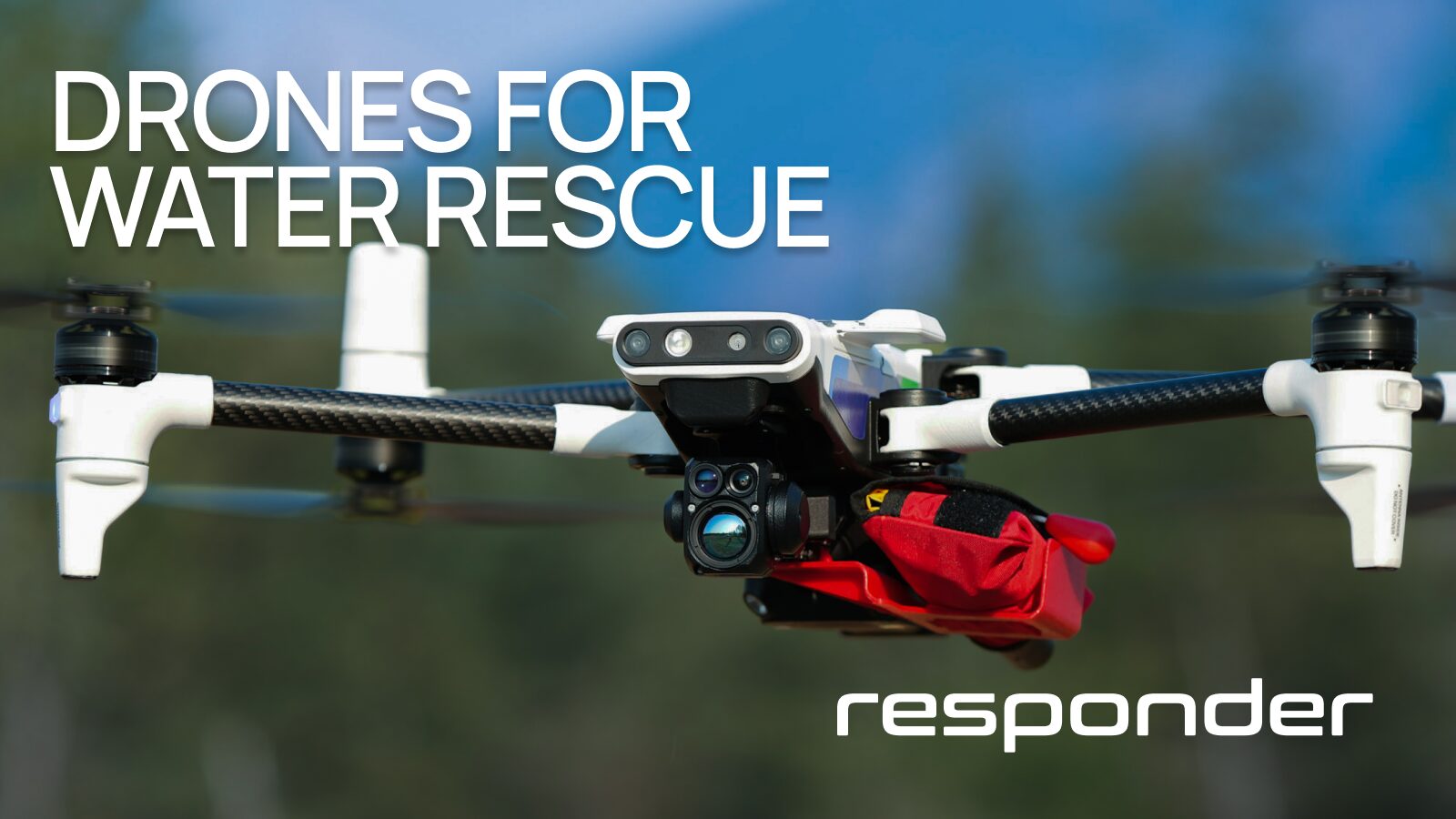
Custom Outfitted for Specific Agency Needs
Every agency has unique needs, so it’s important to understand which payloads will be the most useful. An agency that deals with a high frequency of water rescues will need more Restube EFD mounts, while one that’s in the heart of the opioid crisis will most likely prefer mounts for Narcan.
As the BRINC team works with agencies to identify fixed launch locations for their Drone as First Responder programs, we collect data on the types of callouts throughout their jurisdictions. This has proven insightful when determining which medical payloads should be mounted 24/7 at each of the sites.
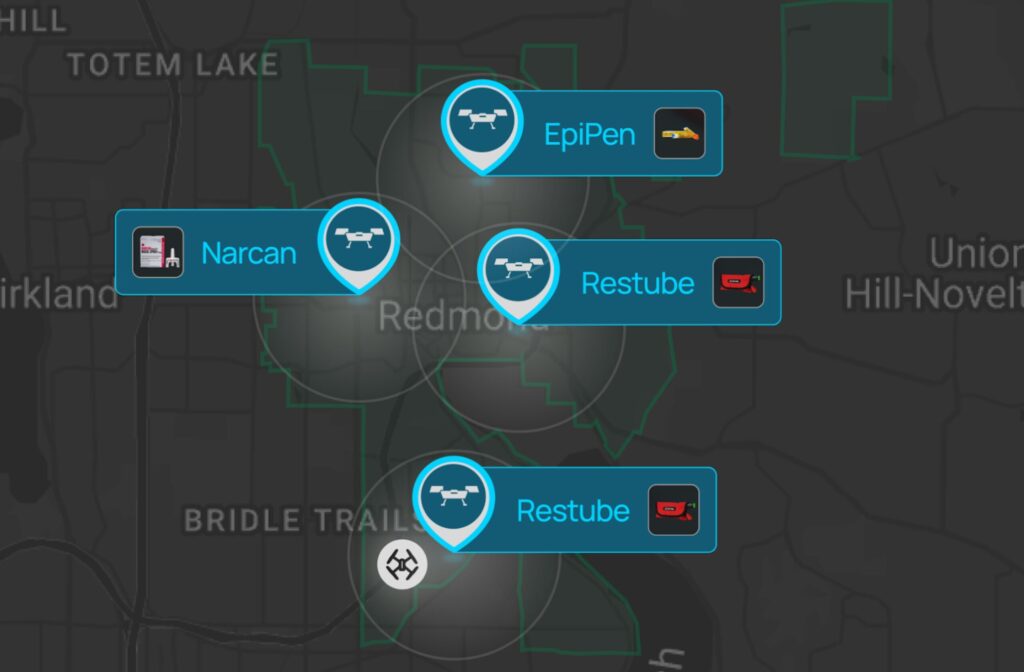
Easy Mounts for Manual or Automated Deployment
Whether the emergency medical deployment is manual or automated, the mounting process must be fast and easy to save valuable time and maintain the drone’s maneuverability.
The goal is for medical payloads to tuck snugly against the side of the drone’s airframe for maximum efficiency. BRINC’s medical device mount has minimal impact on launch and drone operations. It also remains attached even when the drone is housed within its robotic charging nest.
“If you attach something randomly to the drone, it could get eaten by the props, throw off the weight, or fall on someone,” says Tom Luce, Principal Mechanical Design Engineer at BRINC. “Our mounts are much more secure and intentional to reduce risk and streamline operations during a time-sensitive emergency.”
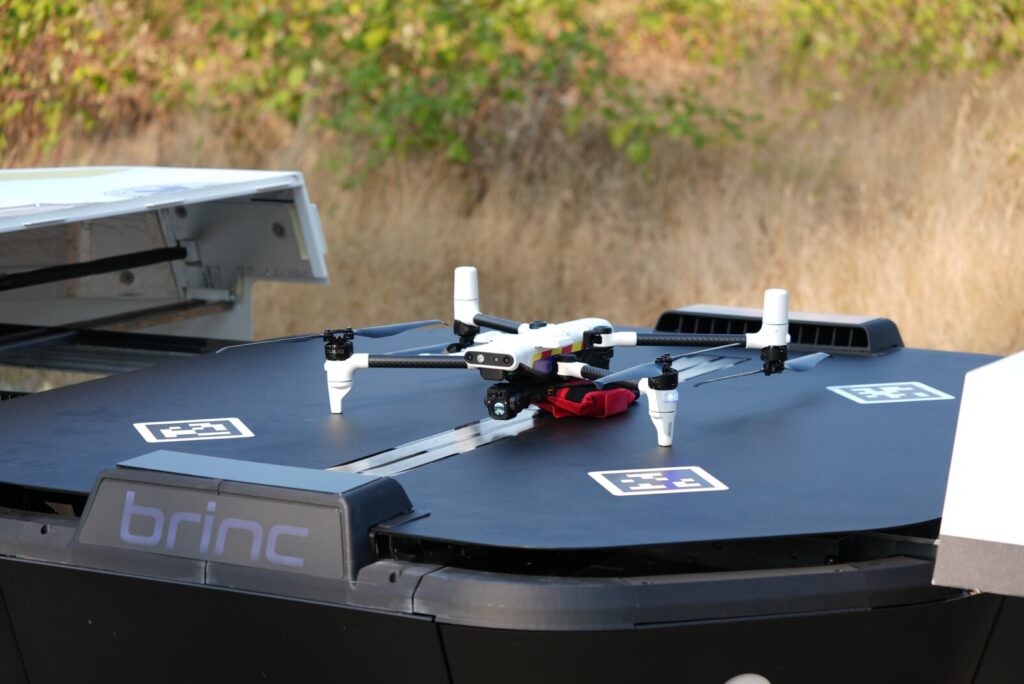
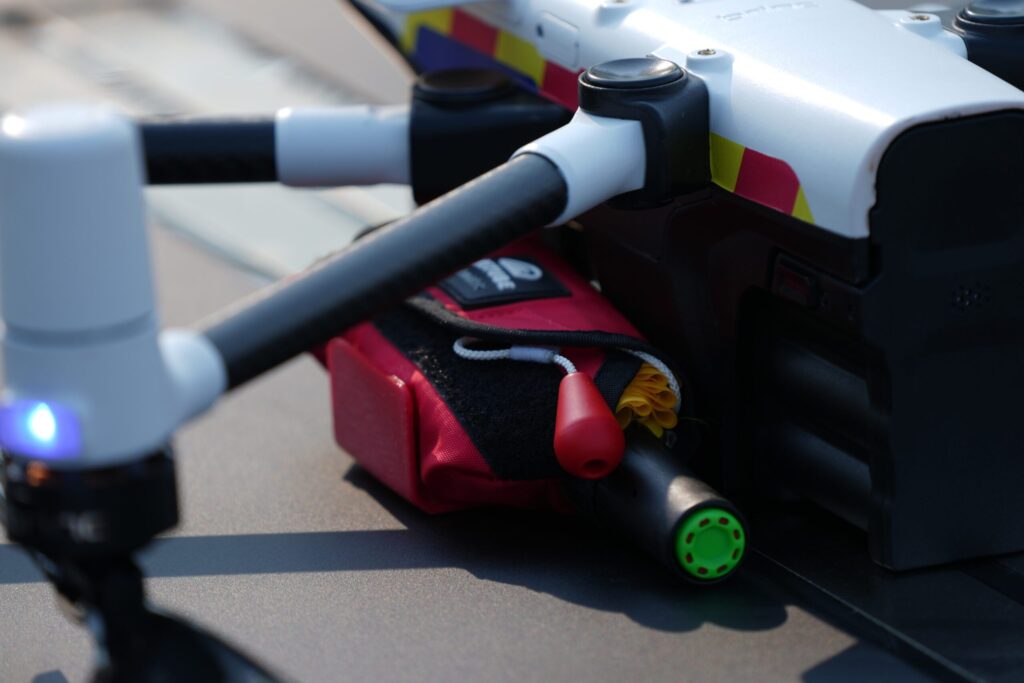
Payload Effects on Flight Time
Of course, the weight of a drone’s payload affects its flight time, but due to the lightness of auto-injectors, Narcan, and the Restube Automatic EFD, there’s a relatively small impact on flight time.
“The goal is to minimize weight and enable the drone to land with the payload still attached,” says Luce. “Basically, we want to fly the drone and still have control of flight time and balance.”
The below chart correlates payload size and impact on flight time with the BRINC Responder drone. The Restube Automatic will decrease flight time by around 4-5 minutes. The upcoming Restube Automatic Pro will be closer to 8 minutes of diminished flight time.
BRINC Responder Flight Time with Different Payloads

A Prepared Drone is a Lifesaver
In an emergency, speed, and preparedness matter. Public safety drones that come custom-equipped with mounts for emergency payloads save communities time and lives. Contact a BRINC representative to outfit your jurisdiction with drones and emergency deployable payloads here.
